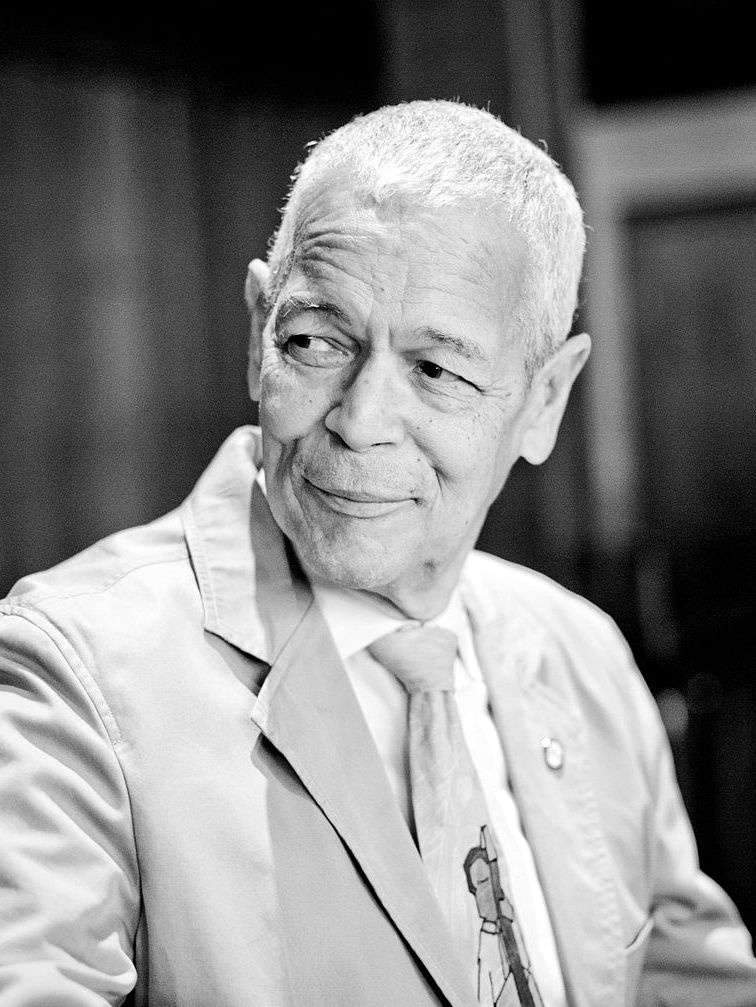Interview with Julian Bond: 'We need to organize!'

Civil rights legend and long-time progressive champion Julian Bond, who passed away on Aug. 15, helped found the Institute for Southern Studies in 1970 as a voice for change in the region. (Eduardo Montes-Bradley/Wikipedia)
This past weekend legendary civil rights organizer Julian Bond died in Fort Walton Beach, Florida at the age of 75. A native of Tennessee, Bond began his work as an activist with the Student Nonviolent Coordinating Committee in 1960, and he continued to be a vocal champion for labor, racial justice and human rights throughout his life. In 1970, Bond was one of the founders of the nonprofit Institute for Southern Studies, publisher of Facing South. In 1998, on the 25th anniversary of the Institute's print magazine Southern Exposure, Chris Kromm interviewed Bond about the changes he had witnessed in the South, and what hopeful signs he saw for change in the coming years.
* * *
Probably the most important gain we've made [in the last 25 years] is the understanding of the necessity for coalition. I think that understanding was always there, but as we go along, it just gets hammered home more and more.
If you think of progressives (in the plural), of necessity you're talking about large numbers of people. And you can't have large numbers of people unless you put different constituencies together. You have to think about the faith community, minority communities, working people. Sometimes people belong to all three. And we need to bring all three together if we want to build toward a majority. Alone, we'll make some progress, but not a lot.
I don't think we've done this [made coalitions] very well, on a sustained basis. We've done it issue-by-issue, at different points. We understand what it takes, but we haven't had the ability.
And this is because one important thing we have lost is the ability to organize. Too often, we think that if we announce something, it's the same as doing it. It isn't. We have to organize people — from mobilizing people for marches, to long union campaigns. Why have we lost this? Well, it's something we always knew, just not something we always do.
For example: Given the right level of organizing, I could easily defeat [Republican U.S. Senator from North Carolina] Jesse Helms. Easily. There's lots of sentiment against him, it just isn't organized. If we really took our message to people, and mobilized, we could win.
We can never match our opponents dollar for dollar. If we can't, we have to match them body for dollar. In others words, if we can't outspend them, we have to out-work them. And that means organizing.
So far, the right is winning the "values debate." But we can turn that around. To do that, we need publications, like Southern Exposure. We need people who have the time to think. The right was the first to realize that ideas count — and, because of their economic superiority, they could make sure their ideas carried the day.
Southern Exposure has exposed people to the good news and the bad news about society and social movements. It's been a wonderful, wonderful resource to people from the merely curious, to people who want to know how they can get involved and create change.
My inspiration for the future is all the young people who are doing so many things. And the old people, who won't stop. And the certainty that we're right, and right does prevail in the end. It may take years, but right does prevail.
Tags
Chris Kromm
Chris Kromm is executive director of the Institute for Southern Studies and publisher of the Institute's online magazine, Facing South.
